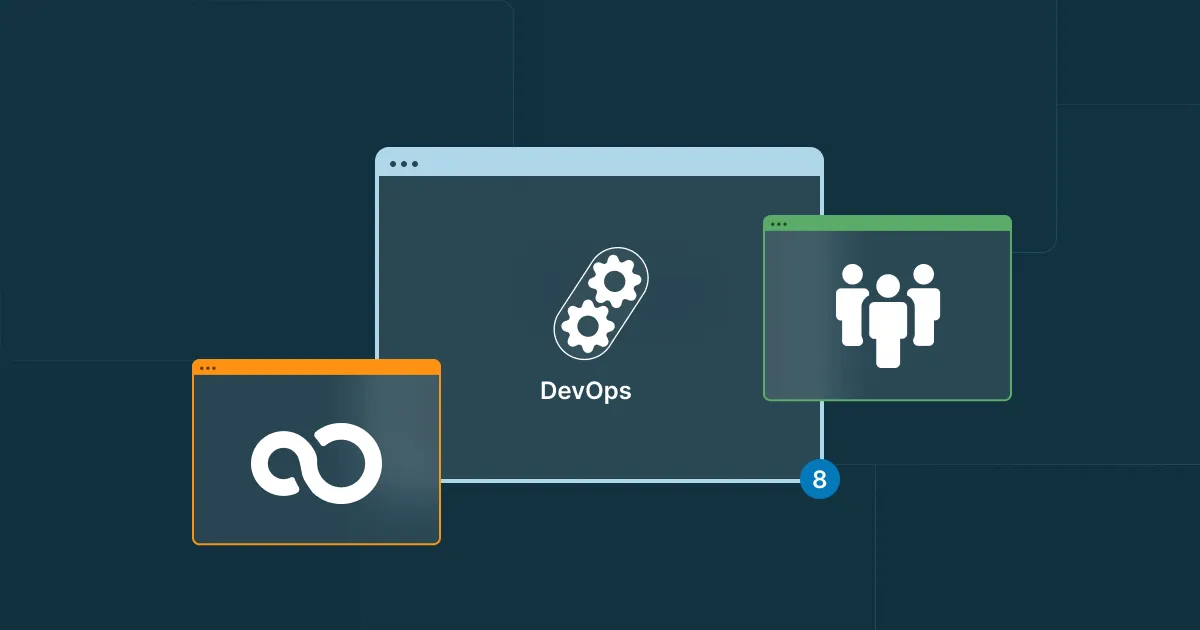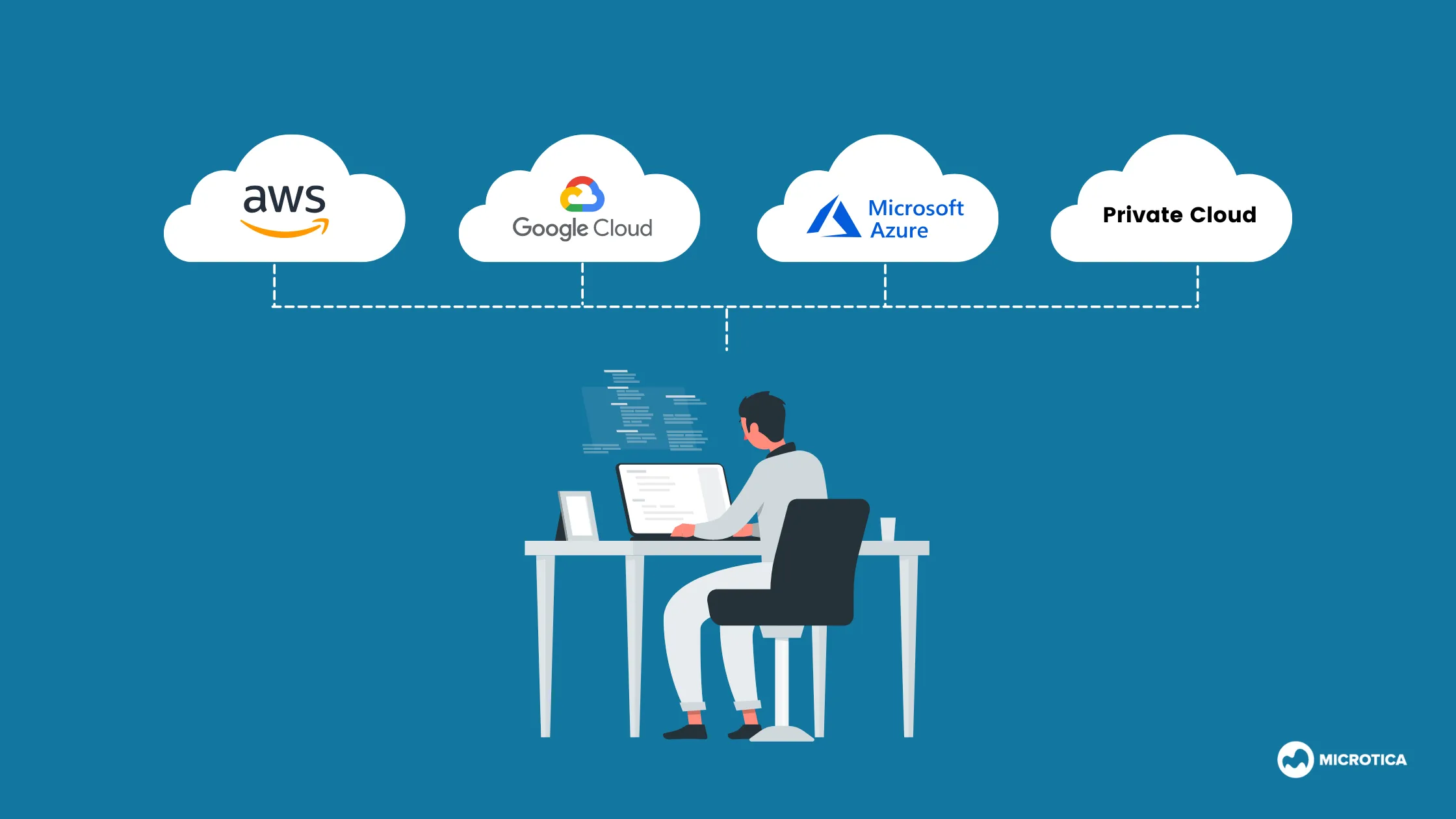Top 8 DevOps Principles: Building a Strong Relationship Between Development Teams

DevOps was created in response to the need for faster and more efficient software development in this dynamic IT environment. Before DevOps, development teams and IT operations worked independently; developers would complete their part of the work and then hand off the software to operations, who were responsible for implementation and maintenance. This model often caused delays, misunderstandings, and increased costs.
DevOps has become essential for teams looking to speed up the delivery process, reduce errors, and improve collaboration. Therefore, this article covers the eight principles of successful collaboration between development teams.
What Is DevOps and Why Is It Important?
DevOps is a process that integrates operations and development to improve team cooperation, decrease errors, and deliver software more quickly. The main goals are continuous delivery, automated testing, and combining development and operations work.
Many procedures are automated using DevOps solutions like Microtica, Docker, Jenkins, and Kubernetes, which reduce the chance of human error and speed up the development cycle. Constant software updates are possible by continuous integration and continuous delivery (CI/CD), which allows users to have faster swift access to new features and updates.
Implementing DevOps brings many benefits to teams and organizations. Many teams work together, which increases collaboration and reduces misunderstandings. Agile processes enable flexibility and faster adaptation to market changes. Software automation reduces manual tasks, allowing more time for innovative projects.
The DevOps culture promotes open communication and continuous improvement, which results in improved software quality and optimized software development. Together, these factors lead to faster software development and increased market competitiveness.
Top 8 DevOps Principles
In addition, we have listed eight best DevOps principles to follow for managing a successful relationship between teams:
1. Customer-Centric Action
DevOps aims to deliver value to the end user. Every action, from code building to deployment, should enhance user experience, solve user problems, or improve overall performance. In order to address the issues, the DevOps team additionally uses live monitoring techniques. This approach makes it easier to have real-time access so teams can make changes faster.
2. Continuous Improvement
DevOps encourages learning from failures and mistakes and iterating quickly. Regular updates, feedback loops, and performance reviews are crucial for optimizing your work. Also, continuous delivery and continuous improvement go hand in hand, enabling DevOps teams to consistently provide upgrades that boost software systems' effectiveness.
3. Responsibility
Teams must manage the entire application lifecycle release, from development to deployment and monitoring in production. This improves accountability and builds better systems. Each member of a team has responsibility for the overall success of the delivery process while working together.
4. Automation
Automating tasks such as builds, tests, and deployments reduces human error and speeds up delivery. With automation, the DevOps team has access to every phase of the development process. This can help to manage more important tasks like improvements and avoid manual tasks. As an important component of a CI/CD workflow, automation increases productivity and boosts team output.
5. Communication
Open communication improves collaboration between developers, operations, and other teams for seamless delivery. By better communication between teams, software development and deployment processes can operate without misunderstandings and errors. Also, with good communication, teams work together without any problems, exchanging responsibilities, expertise, and insights throughout the software delivery lifecycle.
6. Infrastructure as a code IaC
Using a computer instead of manual procedures to manage and provision computing infrastructure is known as infrastructure as Code (IaC). It combines infrastructure management with the concepts of software development, including version control, automation, testing, and continuous integration.
7. Monitoring and Feedback
Monitoring and feedback are essential for maintaining application health, providing performance, and enabling continuous improvement. This principle highlights the importance of transparency across the software delivery lifecycle in DevOps. By real-time monitoring and feedback, teams work quickly without making mistakes.
8. Security Integration (DevSecOps)
Security should be built into every stage of the pipeline. This includes automated security scans, access control, and compliance checks. In a traditional workflow, security is often considered a separate phase late in the development cycle, usually right before release. But DevSecOps is incorporated early and consistently into the development and delivery process.

The Need for DevOps Principles
DevOps is a framework focused on collaboration, shared accountability, and continuous value delivery. For successful implementation, teams must break down traditional silos and collaborate seamlessly throughout the entire software development lifecycle.
To achieve this, development teams must cultivate strong, trust-based relationships. The quality of these interactions directly impacts the success of DevOps practices. When teams collaborate transparently and share responsibility, DevOps becomes a powerful mechanism for efficient delivery, system stability, and long-term growth.
Challenges the Team May Face
DevOps adoption is not without challenges, particularly when it comes to establishing close relationships between development teams. Better collaboration, quicker delivery, and increased system reliability are the ultimate goals. However, this also comes with certain problems that teams may face.
These issues can slow down adoption and impact team relationships. However, overcoming them is possible through strategic actions such as:
- Start small with pilot projects.
- Encourage cross-functional cooperation.
- Choose tools that integrate well, and build a culture of transparency and learning.
With consistent effort and support, these challenges can become opportunities to strengthen collaboration, streamline workflows, and accelerate delivery.
To Sum Up
DevOps focuses on cooperation and communication amongst cross-functional teams, developers, and other stakeholders. All these DevOps principles support teams to collaborate easily, exchange ideas and expertise, and coordinate efforts across the development process. Implementing them, such as automation, teamwork, and continuous improvement, can help businesses optimize workflows, boost productivity, and provide value more successfully.
Subscribe to receive the latest blog posts to your inbox every week.
*By subscribing you agree to with our Privacy Policy.

Relevant Posts



